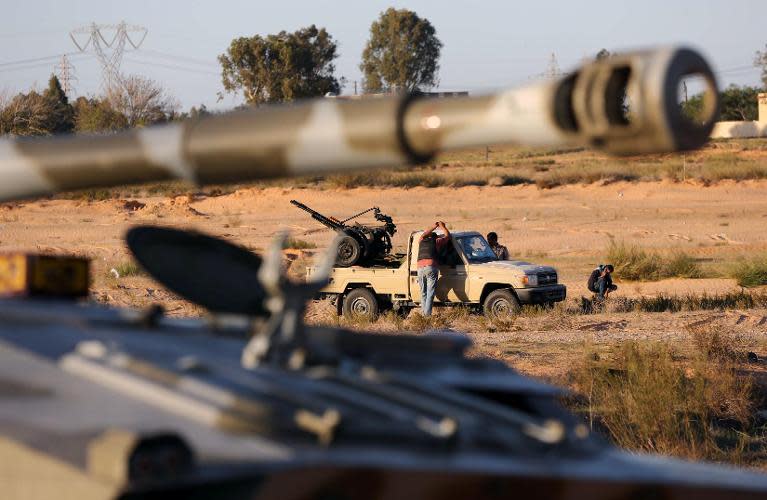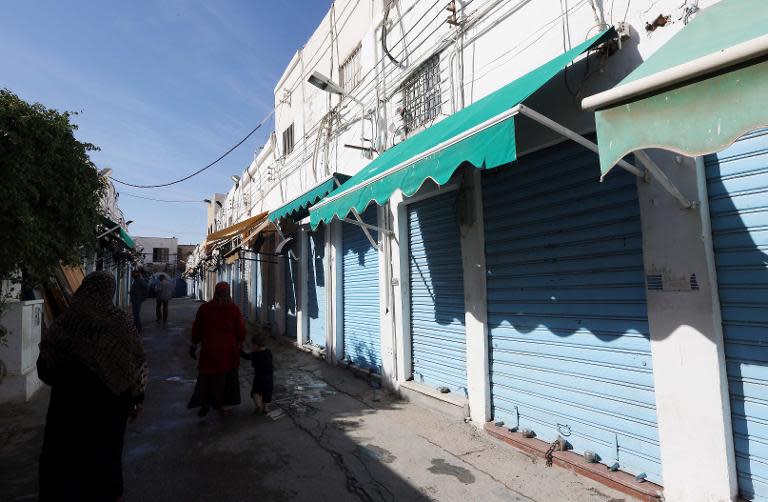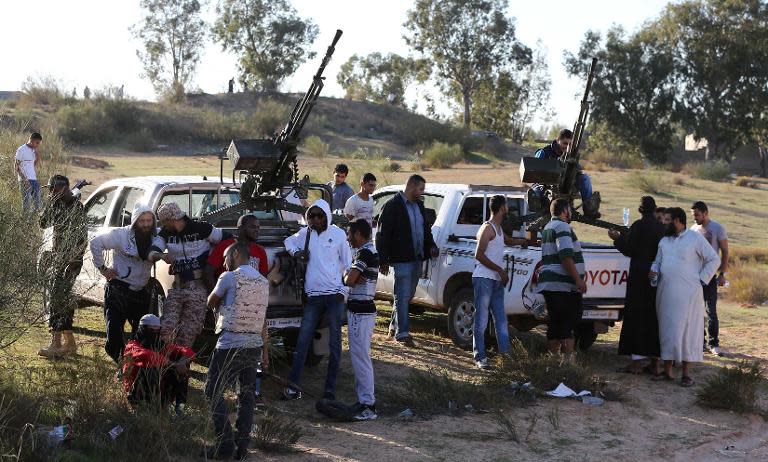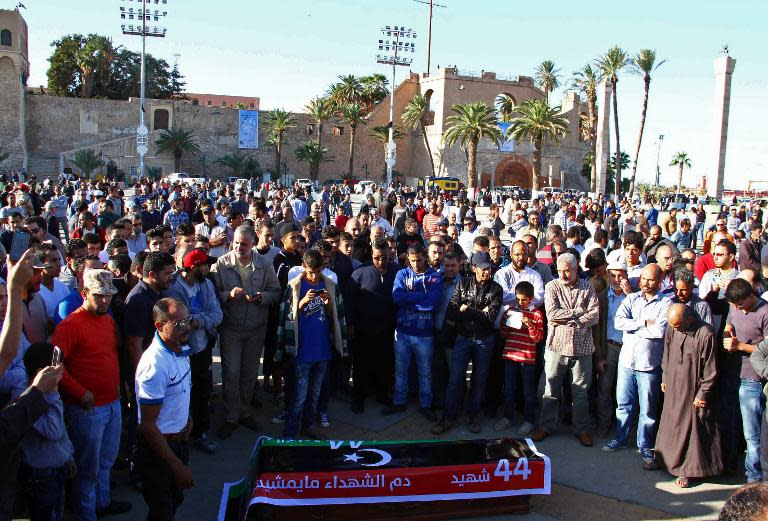Top intelligence chief abducted as Libya marks strike
Libya's deputy intelligence chief Mustafa Nuh was abducted Sunday by gunmen in Tripoli as the capital observed a three-day strike after deadly unrest triggered fears of civil war. The violence was the deadliest in the city since the 2011 uprising and erupted Friday when demonstrators took to the streets to protest against an unruly militia of ex-rebels who helped to topple dictator Moamer Kadhafi. At least 43 people were killed and more than 450 wounded in violence that raged overnight and into Saturday, the health ministry said. Tripoli city council late Saturday announced a three-day strike across the private and public sector to mourn the dead, also urging citizens to exercise "calm and restraint". But people exasperated by the government's failure to rein in militias set fires ablaze and put up barricades on major roads, blocking them amid calls for civil disobedience, AFP reporters said. And late Sunday, several hundred gathered in the centre of Tripoli, chanting slogans demanding that militias evacuate the city and the formation of a strong army and police. As reports emerged that deputy intelligence chief Mustafa Nuh had been kidnapped, dozens of protesters broke into the General National Congress (GNC), Libya's parliament and top political authority. "We demand brave decisions from the Congress to put an end to the presence of militias in the capital," one protester told AFP. A security official said that Nuh was abducted shortly after returning to Tripoli from a visit abroad. Former rebel commander Ala Abu Hafess told Al-Naba private television channel he was in a car with Nuh when armed men ambushed them as they left the airport. Abu Hafess said he managed to flee but Nuh was driven off by the gunmen. "I ran. They opened fire at me but didn't hit me," he said. In October, gunmen briefly abducted Prime Minister Ali Zeidan in Tripoli, and a few days later a security official claimed responsibility for the operation and said he was "proud" of it. Libya's embattled government has struggled to rein in former rebel brigades that helped end Kadhafi's 40-year dictatorship but have since grown into increasingly menacing militias. Analysts have warned of further unrest unless the militias are disarmed. Risk of escalation Hanan Salah, a researcher with Human Rights Watch, said the latest clashes "showcase the extent of the reckless acts of unaccountable militias these past two years, and the government's lack of ability to control them". "The priority for the authorities now is to get a grip on these renegade groups, disarm and demobilise them and hold them accountable for crimes committed," Salah told AFP. "Otherwise there is a real risk for an escalation in violence." The brigade at the heart of the latest violence was from Misrata, a coastal city east of Tripoli that saw some of the worst fighting in the uprising that toppled and killed Kadhafi. Nuh is also from Misrata. On Friday, demonstrators marched on the group's Tripoli headquarters to demand that they leave and return to Misrata when shots were fired from inside the base. Several protesters were killed and rival militias then swept in, with gunfire and explosions echoing across the city. On Sunday the defence ministry ordered that the base -- a group of villas that once belonged to Kadhafi cronies -- be demolished. The fighting came a week after clashes between militias in Tripoli killed two people. Premier Zeidan called for calm after the latest round of fighting and said "the coming hours and days will be decisive for the history of Libya". His government has struggled to convince militias to disarm or join the national security forces, as many of the groups are more loyal to their commanders, towns or tribes than to Tripoli, and have carved their own fiefdoms in a country awash with weapons. Tension remained high in Tripoli Sunday where banks, most schools, universities and shops except for some grocers and cafes were closed, AFP reporters said. "Unfortunately, many schools are closed today," education ministry spokesman Samir Jarnez told AFP.





